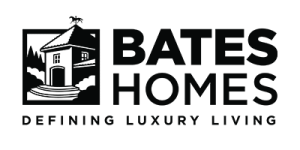What You Need to Know about FHA Mortgages
In March 2023, the Federal Housing Administration (FHA) instituted a 30 basis point reduction to the mortgage insurance premiums (MIP) charged to homebuyers who will obtain an FHA-insured mortgage with a 3.5% down payment. This could mean savings in the thousands to many first-time homebuyers. So what is an FHA loan and how do they work? Let’s take a look.
What is an FHA Mortgage?
FHA stands for Federal Housing Administration. An FHA loan is a mortgage that is backed by the government, specifically the Federal Housing Administration. They are especially popular among first-time homebuyers because they often require lower down payments and lower minimum credit scores to qualify. You do not, however, need to be buying your first home to qualify for this type of loan. Due to the greater convenience and availability for homeowners to obtain an FHA mortgage, interest rates may be a bit higher than conventional loans.
How Does an FHA Mortgage Work?
An FHA mortgage can be obtained for those interested in purchasing a multitude of properties including single family homes and multifamily properties. The government insures these loans, but they are underwritten by third-party lenders already approved by the FHA. The homebuyer has the choice of a 15 or 30-year term loan with a fixed or adjustable interest rate.
One thing to keep in mind is that every borrower must also pay FHA mortgage insurance. This insurance protects the lender from loss if the borrower defaults on the loan. Most mortgage loans require mortgage insurance if the borrower’s down payment on the home is less than 20%. There are two premiums the borrower must pay:
- Upfront Mortgage Insurance Premium. This is a small percentage of the loan amount that can be rolled out over the term of the loan.
- Annual Mortgage Insurance Premiums. Factors to determine this amount are whether the loan is a 15 or 30 year term loan and the LTV (loan to value ratio). This premium is divided by 12 and paid monthly.
Borrowers who finance 90% or less of the property’s value will often see their mortgage insurance premiums cancelled after 11 years if they stay current on their monthly mortgage payments.
Closing costs are limited to 3-5% of the loan amount. The FHA does allow up to 6% of the home buyer’s closing costs to be covered by lenders, sellers, and builders.
Benefits & Considerations
If you believe that an FHA mortgage might be a good fit for you, start now by saving for your down payment and researching potential lenders.
Benefits
- As long as you meet FHA requirements, the FHA does permit you to get down payment assistance and financial gifts. There are many conventional loans that don’t allow for this.
- It’s possible to obtain an FHA loan even with a down payment as low as 3.5%, as long as your credit score is 600 or so minimum.
- On occasion, the FHA does permit individuals with credit scores as low as 500 to obtain a loan. This can be particularly helpful if your credit history is weak.
- FHA allows sellers to pay up to 6% of the closing costs. Many conventional lenders put a cap of 3% on the seller’s contribution.
Considerations
- The FHA has loan limits on how much you can borrow. This is established by the median home prices in the metro area and surrounding counties. Because home costs are always changing, these loan limits change as well.
- If you have good credit, there are other options to consider even if you don’t have a lot of money for a down payment on the home. FHA mortgage premiums may be higher in some instances than private mortgage insurance, which you will still be required to pay if you don’t put down 20%.
- Even though the mortgage insurance premiums can be rolled out into your loan, they can still be a bit costly.
Requirements and Qualifications
You must meet some requirements to qualify for an FHA loan including:
- Minimum credit score. The lower your credit score the more you will need for a down payment. Generally, a 580 score will require a down payment of 3.5%. A score of 500 may require 10%.
- Debt to income ratio. The total of your monthly debts cannot be more than 43% of your gross income.
- Your potential lender will look very closely at your income, credit and the value of the home you want to purchase.
- You must plan to buy a home with between one and four units while also planning to use it as your primary residence.
Keep in mind that there are alternatives to FHA mortgages including a USDA loan, conventional loan and VA loan, each with their own set of standards and qualifications. Overall, FHA mortgages are a great way for many people to be able to purchase a home. The standards to qualify are not terribly high, and they are forgiving for people who might not have stellar credit histories.









